- Seller: Michael L (Contact)
- Location: Sarasota, Florida
- Mileage: 19,200 Shown
- Chassis #: 17A0952889
- Title Status: Clean
Choosing the right project candidate can be challenging because, sometimes, it is hard to justify owning a vehicle that will only see the road for weekend outings. That is where this 1980 Volkswagen Rabbit stands out from the crowd. Returning it to its former glory would be a straightforward process, and the finished product could serve as a practical and economical daily driver. It needs a new home, with the owner listing the Rabbit with us at Barn Finds Auctions.
Volkswagen released the Golf Mk 1 in 1974, with the new model hitting North American showrooms as the Rabbit in 1975. Italdesign undertook the styling, and the sharp and clean appearance won the car universal praise. Our feature car rolled off the line in 1980 and shows promise as a project for a first-timer or an enthusiast seeking a hands-on approach. The Sunbright Yellow paint shows some age, and the car would undoubtedly benefit from a cosmetic refresh at some point. However, it is presentable, allowing the winning bidder to undertake the work at their leisure. There is developing corrosion in the drip rails and some heavier corrosion at the base of the windshield, but this hasn’t deteriorated to the point of steel penetration. Its garage-kept history has undoubtedly helped its cause because this little survivor is as solid as they come. The panels are straight, with no significant dents or imperfections. Potential buyers will welcome the two-piece glass sunroof that will admit plenty of fresh air on warm and sunny days. Some trim pieces may require restoration, but most of it is suitable for reuse on a driver-grade restoration. The VW retains its original wheel center caps, and the glass looks excellent.
The Rabbit’s styling was considered crisp and clean upon release, but potential buyers needed to look below the surface to appreciate the quantum change in design philosophy embodied in these cars. Volkswagen’s new offering was introduced to replace the Beetle, and the drivetrain configuration couldn’t have been more different. The days of air-cooled rear-engine design were gone, with the Rabbit featuring a more traditional front-mounted water-cooled four. This was transversely mounted to send power to the front wheels, providing excellent packaging efficiency and interior space. This classic features the 1,457cc powerplant producing 69hp and 81 ft/lbs of torque. This feeds to the road via a four-speed manual transmission. The power and torque figures may seem modest, but the engine provides enough urge to make the 1,780 lb Rabbit a spritely performer capable of returning class-leading fuel consumption figures. This car is in excellent mechanical health, running and driving as it should. Cruising at freeway speeds would be effortless, with this VW capable of topping 30 mpg. It is a turnkey proposition that could serve immediately as a daily driver.
Volkswagen continued its philosophy of simple design principles with the Rabbit’s interior, but the effect remains modern and clean over four decades after this car rolled off the showroom floor. It features Tan vinyl and plastic that has survived remarkably well. The pad is cracked in a couple of places, and there are options for potential buyers to consider. A DIY restoration with a product like Polyvance is possible. However, a simple dash mat would camouflage the issue for under $50, and a molded cap would cost the buyer under $160. The quality of these caps has improved enormously recently and could be the best alternative. The carpet is slightly faded, but the lack of significant wear means that dying might be an affordable option if the new owner doesn’t wish to spend $140 on a carpet set. Otherwise, the vinyl trim is in good order, with no rips or tears. In-car entertainment is supplied by an AM/FM stereo radio, and the original owner ordered this gem with air conditioning. The compressor is missing, but the rest of the system appears intact.
Automotive history is filled with examples of manufacturers pursuing an entirely new design or engineering philosophy, and this 1980 Volkswagen Rabbit could not be more different from the car it was destined to replace. Its drivetrain configuration isn’t radical by modern standards, but the Rabbit’s engineering and performance set new standards for vehicles of this type. This classic is a rock-solid survivor that is a turnkey proposition for its new owner. Returning it to its former glory would be easy and rewarding, with the finished product eye-catching but unerringly practical. Submitting a bid would be the perfect first move if you find that prospect irresistible.
Bid On This Auction
 vwhooptie bid $2,750.00 2023-09-29 10:46:09
vwhooptie bid $2,750.00 2023-09-29 10:46:09 RoadTripRevivals bid $2,650.00 2023-09-29 10:23:09
RoadTripRevivals bid $2,650.00 2023-09-29 10:23:09 Lurch77 bid $2,550.00 2023-09-29 07:50:47
Lurch77 bid $2,550.00 2023-09-29 07:50:47 Dozier bid $2,450.00 2023-09-29 06:31:17
Dozier bid $2,450.00 2023-09-29 06:31:17 Jacko bid $2,350.00 2023-09-24 21:16:16
Jacko bid $2,350.00 2023-09-24 21:16:16 vwhooptie bid $2,100.00 2023-09-23 10:18:23
vwhooptie bid $2,100.00 2023-09-23 10:18:23 Tony Marzelli bid $2,000.00 2023-09-22 21:31:21
Tony Marzelli bid $2,000.00 2023-09-22 21:31:21 Tim B bid $1,601.00 2023-09-22 20:02:15
Tim B bid $1,601.00 2023-09-22 20:02:15 Unclebubba bid $1,500.00 2023-09-22 17:13:41
Unclebubba bid $1,500.00 2023-09-22 17:13:41 Suave79 bid $1,000.00 2023-09-22 09:43:41
Suave79 bid $1,000.00 2023-09-22 09:43:41 Scclark bid $900.00 2023-09-22 08:46:41
Scclark bid $900.00 2023-09-22 08:46:41 vwhooptie bid $600.00 2023-09-21 14:32:11
vwhooptie bid $600.00 2023-09-21 14:32:11 Barry1 bid $500.00 2023-09-21 10:57:51
Barry1 bid $500.00 2023-09-21 10:57:51
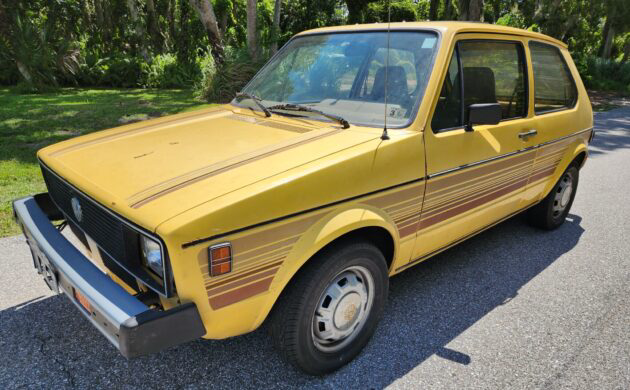
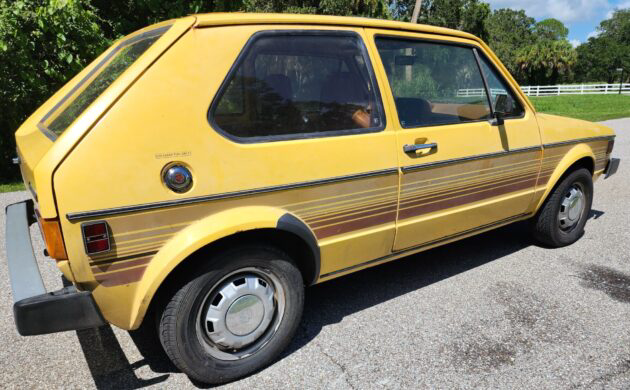
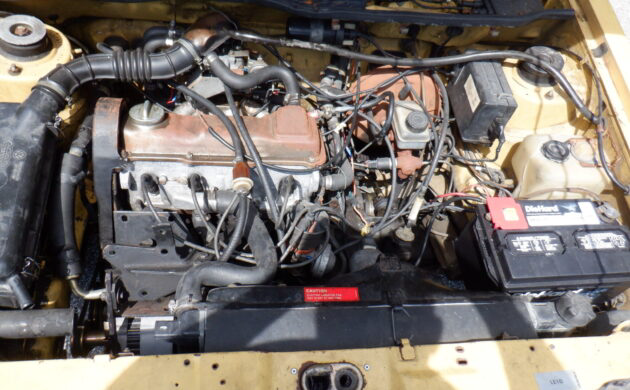
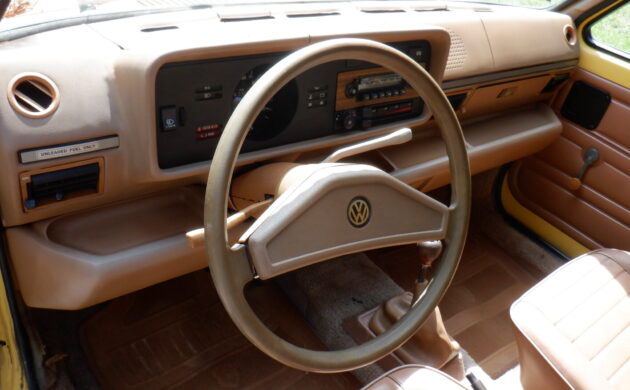
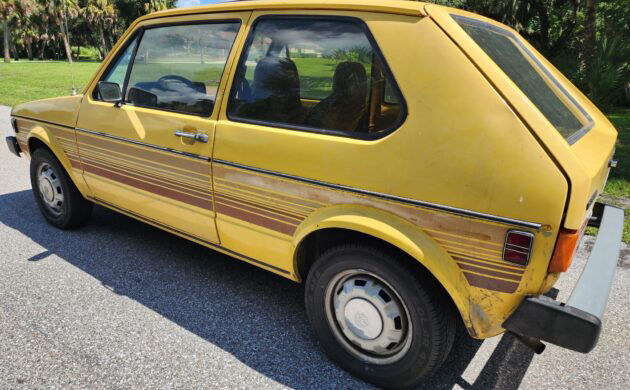
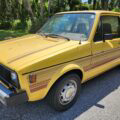
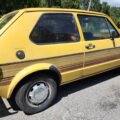
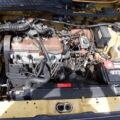
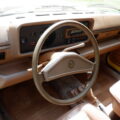
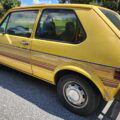
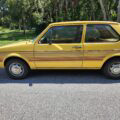
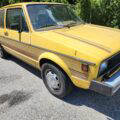
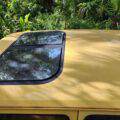
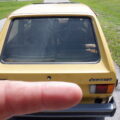
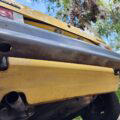
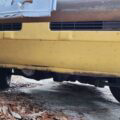
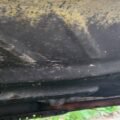
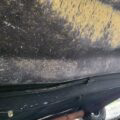
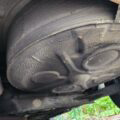
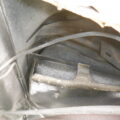
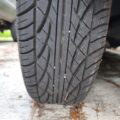
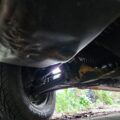
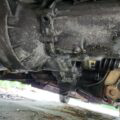
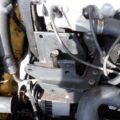
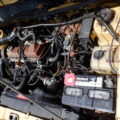
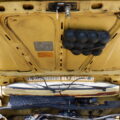
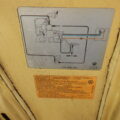
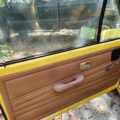
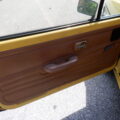
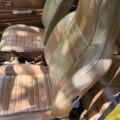
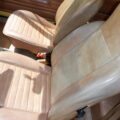
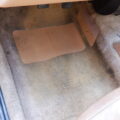
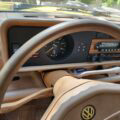
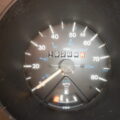

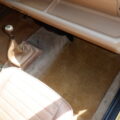
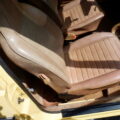
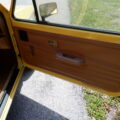
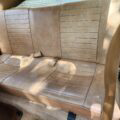
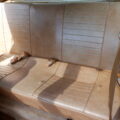
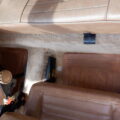
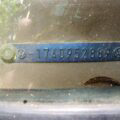


I have owned a yellow 1975 and grey 1982 rabbit.
These were great back in the day.
The mileage comparison to today cars is not great.
They ran great and were quick in their heyday.
Good luck on sale!
I had two new ’75s, a Rabbit and a Dasher. They both sucked.
I agree because both were carbureted and I think the early Rabbits had 4 wheel drum brakes. When the 76 models got Bosch K-Jet they ran strong. We had a 76 parts runner Rabbit at the shop and that was a hoot to drive. Especially with the 175/70X13 tires. Man talk about driving a slow car fast sliding through the turns.
Brings back memories! There were a few of these on block back in the early 1980s. Even though it was light years ahead of the domestic offerings in terms of engineering and quality, there were way more Chevy Chevettes, Mopar Simca twins, and Ford Escorts/Mercury Lynx than these.
People were still very loyal to domestics back then. That rapidly changed as the ’80s wore on. The Big Three missed a big opportunity by not taking small cars more seriously during that era.
Yes it’s a shame. Today domestic loyalty isn’t even a consideration, many would leap at the chance to buy a Chinese brand if they could.
In 1980 VW introduced a budget Rabbit with the carbureted 1.5L engine and a long ratio 4 speed transaxle. I’m not sure if that was the start of the Sparmeister model but later ones got the 1.7L carb engine. It was the budget entry model. The car is in good condition and finding a rust free Rabbit is no easy task these days. Beauty of VW cars of this era is the ease in which engine and transaxle swaps can be made. It’s good the original A/C compressor is gone. That large brick of a York compressor added a bunch of weight taxing an already poor passenger engine mount design. We used to replace the mounts every 30K with a timing belt on the early ones. Also the belt was tensioned using a split pulley and shims. Worked on Beetle generators but no so much on the Rabbit.
Yank the powertrain and install a 2.0 golf powertrain and you have a reliable and efficient little car. I had a lot of fun with my 80 Rabbit made into a GTI with powertrain and seats from a 84 Scirocco. Quicker than the 83-84 GTI due to less weight.
This car would have been built at Westmoreland, PA. The VW plant there has long since been closed.
Singer/songwriter Harry Chapin was killed in a Rabbit in 1981.
This is a nice example, there probably aren’t many left.
Hmm, I didn’t know that, Richard. I do know he wasn’t killed, but more like died on the NY Thruway on the way to a concert in Albany. Other motorists say they saw a car with the flashers on, and was rear ended by a semi. They think he was already dead before the truck hit him. I didn’t know it was a Rabbit.
Harry Chapin was one of my favorite artists, and a big hole was left in the music scene when he died.
A Rabbit, by gar, that takes me back. I try and limit my stupid 3am ramblings, but some cars just need a bit more than the author says. I don’t think they mind. The Rabbit was a corny name for a car, when we had MUSTANG,,,and CHARGER, and such. WILD car names. We never heard the word Golf, but why name a car after one of the lamest sports, sorry golfers, it’s lame,,compared to football anyway. It really means “Gulf Stream” in German,( Jetta was “Jet Stream”, etc) I read. I still don’t get it.
The Rabbit had some mighty BIG shoes to fill. Even though the Bug interest was waning, it was clear a replacement was needed. VW fans( pun intended) were shocked, no outraged at what replaced their loyal Bug. Kind of how British fans felt about the TR7. It was different in every way, Bug owners wanted nothing to do with it, however, times were a changin’, and non-Bug people looking to replace the LTD, wanted a more modern car, with real heat-a/c, the Rabbit changed everything. It, I believe, was the grand daddy to all the “econoboxes” that came after. Even the ALL-NEW Dodge Omni/Horizon( 1978) had strange a resemblance to the Rabbit. Even had the Rabbit motor, or similar. I, being a Bug fan, never cared for the Rabbit, but again, you’d have to be born not too long ago, to not see what an important car this was. Great find, and that’s another thing, what happened to all those Rabbits? Yep, you guessed it, lined up right next to all the Pintos, Vegas, Gremlins, Datsuns, Mazdas,( remember the GLC?) Corollas, Civics with no floors or fenders in junkyards, that’s where.
Reason I say where did they all go, is a whopping 1.5 MILLION Rabbits were sold in the US. That’s mighty impressive.
The MK1 Rabbits were very prone to rust, at least in the Midwest. I remember seeing them in the mid/late 1980s in a various stages of decomposition. Plus, they were “throwaway” cars, and small spartan vehicles became much less of a thing after gas prices started to drop during the Reagan era. Put that all together and I’ll guess maybe 2% of that 1.5 million still exist, at best.
Maybe it’s a fricassian wabbit. Sorry, I couldn’t resist.
Yes, this car seemed to have been the inspiration for a lot of vehicles to come. IIRC the Omnirozon cars were a Simca design adapted for our market. I had an ’81 with the 1.7 VW motor. Slow as Advent but great on great on gas.
Had a love/hate relationship with my 1975 Rabbit. Had I only known: Take that fuel line, and route it away from the engine block, to avoid vapor lock in the summers. In the cold, it was fun to drive!
I had a ‘79 Rabbit, turbo diesel, 45mpg and topped out at about 125mph! It surprised a lot of cars that they thought were fast, thing was stupid fast!
Have a 89 Cabrolet which is a golf MKI. Love that little car. Would love to have a rabbit , for rainy days.
Sorry Mike but 85mph maybe on the 81 Diesel we owned. 50 HP pushing a brick through the wind doesn’t get you to 125MPH. My more aerodynamic Golf 16V would only do 120mph with 120HP.
@Mike D – 125 MPH if you dropped it off a cliff, LOL!!
Does anyone know what that thing on the bottom of hood that looks like a bunch of rubberballs all cast together is?
Vacuum reservoir for the blower flap control solenoids.
It’s the charcoal canister. Originally it was not attached to the hood with a bungee cord.
No it’s actually the vacuum reservoir needed to run the HVAC vacuum controls on cars equipped with factory A/C. When I worked in the shop we used to say these were male rabbits:)
these were a bit half heartedly screwed together, and electrical systems, brakes, timing belts, I forget the rest.. we’re common problems. They vastly improved with the 85 Golf. Only to get better and better.
Ours on the cabrolet is held on with zip ties
I mean the charcoal canister , not the timing belt 🤣🤣
I always thought it looked like one of those plastic egg cartons we used to use for camping trips
Didn’t the rabbit come with a diesel engine?